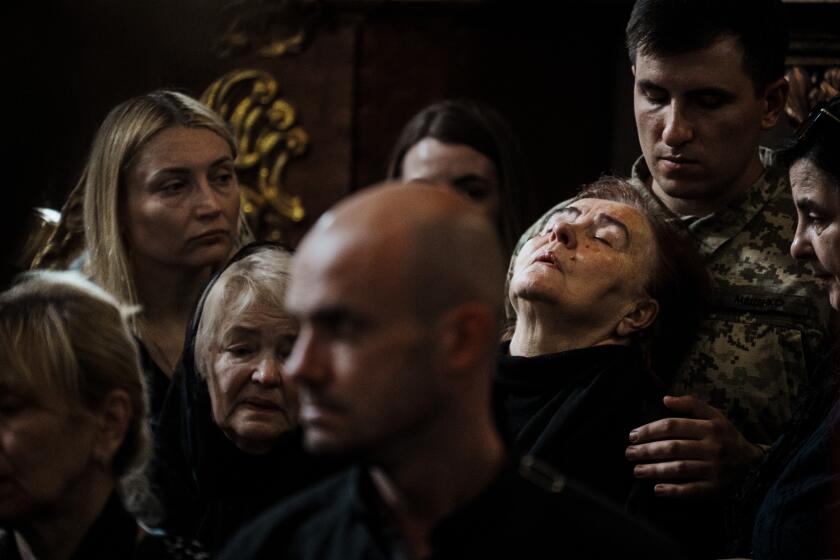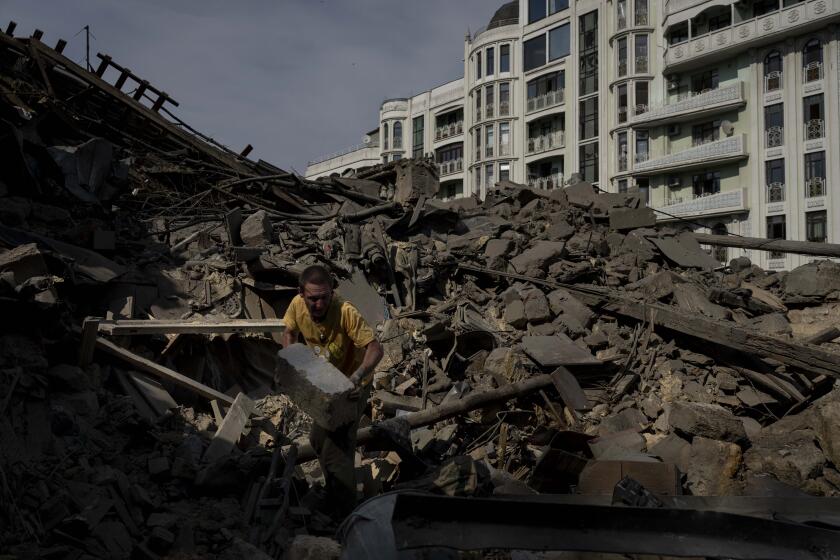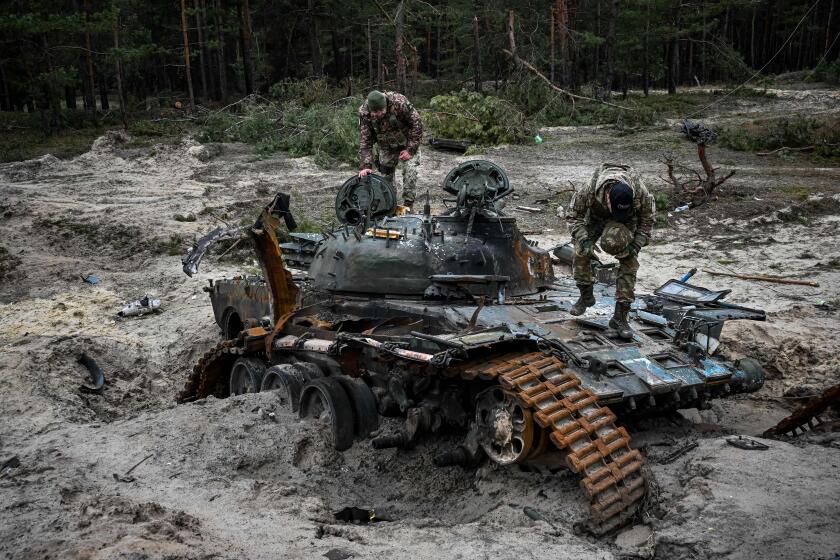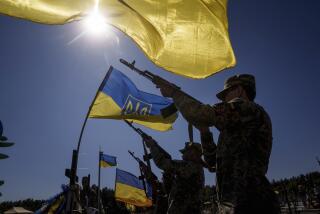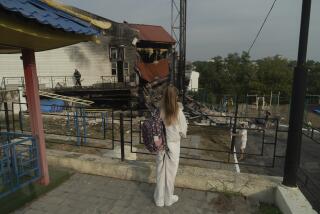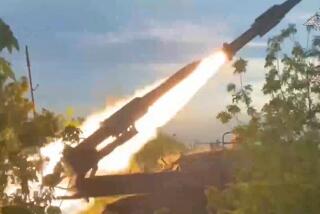Russian shelling hits landmark Ukrainian church where Potemkin was once buried
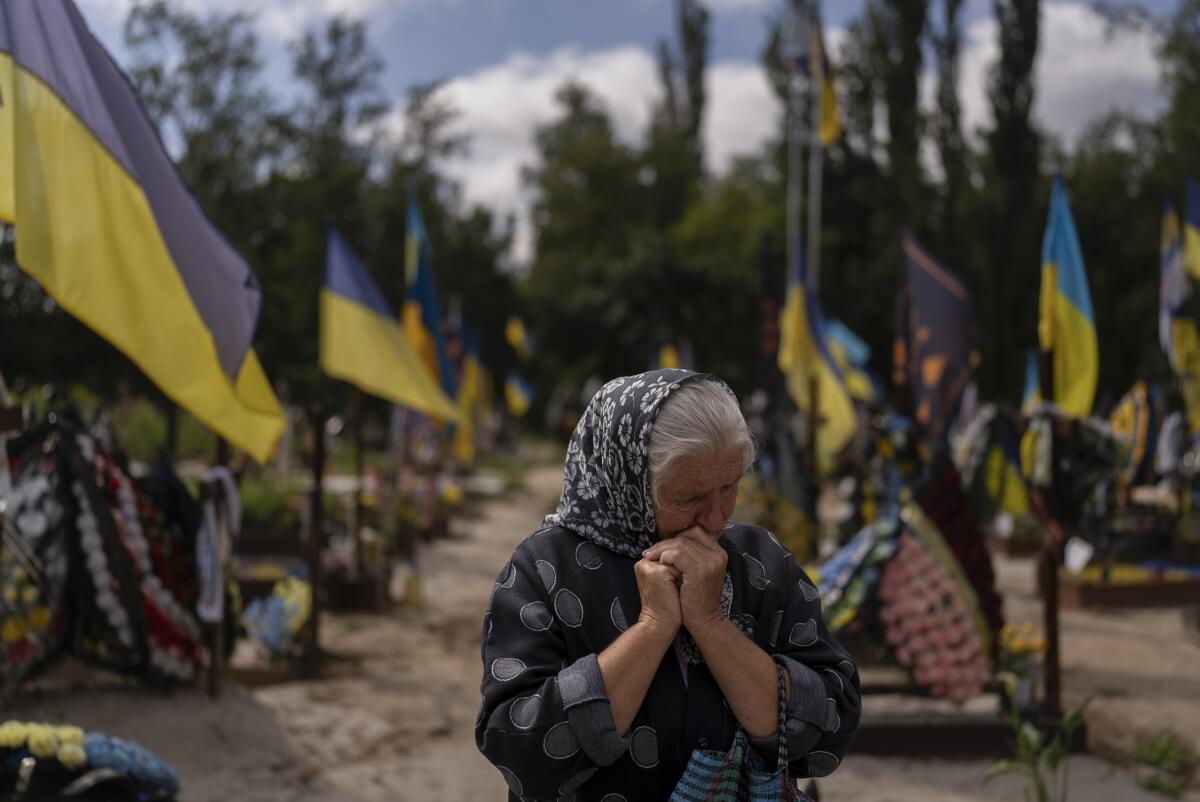
- Share via
KYIV, Ukraine — Russian shelling damaged a landmark church Thursday in the Ukrainian city of Kherson that until last year held the remains of Prince Grigory Potemkin, an 18th century Russian military commander who encouraged Catherine the Great to expand the Russian Empire into what is now southern Ukraine.
Ukraine’s emergency service said four of its workers were wounded in a second round of shelling as they fought a fire at St. Catherine’s Cathedral. Four other people were wounded in the first shelling attack, which also hit a trolleybus, the prosecutor general’s office said.
A missile strike severely damaged a beloved Orthodox cathedral in Odesa, another city in southern Ukraine, and Thursday’s attack further underlined the war’s risk to the country’s cultural monuments. Fighting has intensified in multiple regions as Ukraine’s military steps up a counteroffensive to reclaim Russian-occupied territory.
The Kherson church, dating from 1781, is one of the city’s most notable buildings. It once was the burial spot for Potemkin, a favorite of Catherine the Great’s who exerted Russian control through the southeast parts of modern Ukraine and engineered the 1784 annexation of Crimea from the Crimean Khanate.
Even far from Ukraine’s front lines, military funerals set off waves of mourning. ‘You can’t see an end to it,’ one chaplain says as the war drags on.
Potemkin became the governor general of what was called “New Russia.” His name entered popular speech because of stories, now widely doubted, that he erected fake settlements called “Potemkin villages” to impress Catherine during her long journey through Crimea and the southern territories.
In September, at a Kremlin ceremony marking Russia’s illegal annexation of four occupied or partially occupied Ukraine provinces, President Vladimir Putin referenced the concept of New Russia and noted that both Catherine and Potemkin had founded cities there.
Moscow-backed authorities had Potemkin’s remains removed during the city’s eight-month occupation. Russian forces withdrew from Kherson in November as Ukrainian soldiers gained ground in their attempt to take back the regions Putin annexed.
In a week, Russia has fired dozens of missiles and drones at the Odesa region of Ukraine, hitting the historic city center that had been largely spared in the war.
The Russian retreat instantly made the city a target of daily Russian attacks, most of them involving artillery and drones sent from Russian-held territory across the Dnipro River. The relentless strikes often result in reports of civilian casualties.
The Ukrainian president’s office said two people were killed in the last day in Russian attacks — one in eastern Ukraine’s Donetsk province and one in Zaporizhzhia province.
The Ukrainian air force said Russia launched a wave of 15 Shahed drones against the Kyiv region but all were shot down. The governor of the capital region, Ruslan Kravchenko, said there were no injuries or damage.
The Ukrainian military’s surrender hotline, dubbed ‘I Want to Live,’ is enticing some Russian soldiers to quit the battlefield as the war drags on.
Ukraine’s military also continued to launch attack drones deep into Russia. The Russian Defense Ministry said seven Ukrainian drones were downed in the Kaluga region, about 90 miles south of Moscow, the latest incident following attacks that twice hit buildings in the Russian capital that house some government ministries.
Kaluga Gov. Vladislav Shapsha reported another drone was shot down later Thursday.
The deputy chair of Russia’s Security Council, Dmitry Medvedev, said Thursday that 231,000 men have enlisted in the Russian army as contract soldiers since Jan. 1. Medvedev made the remarks at a meeting on expanding the army just months after Russian authorities launched a massive campaign to entice more men to sign military contracts.
Moscow is seeking to boost its forces in Ukraine and to bring the size of its army to 1.5 million troops. Russian Defense Minister Sergei Shoigu declared in December that the country needs that many soldiers “to fulfill tasks to ensure Russia’s security.”
AP reporters Jim Heintz and Dasha Litvinova contributed to this report from Tallinn, Estonia.
More to Read
Sign up for Essential California
The most important California stories and recommendations in your inbox every morning.
You may occasionally receive promotional content from the Los Angeles Times.
